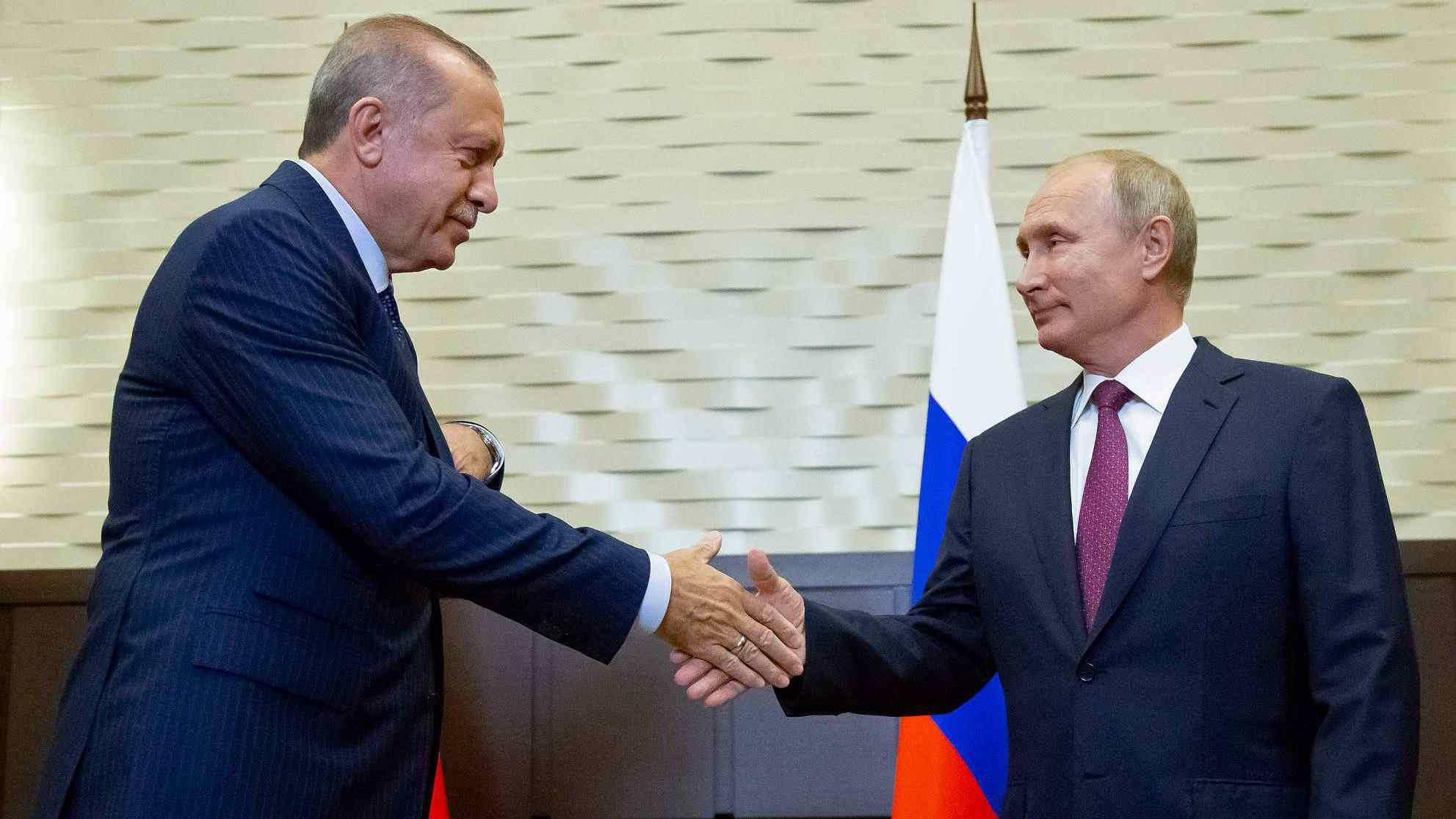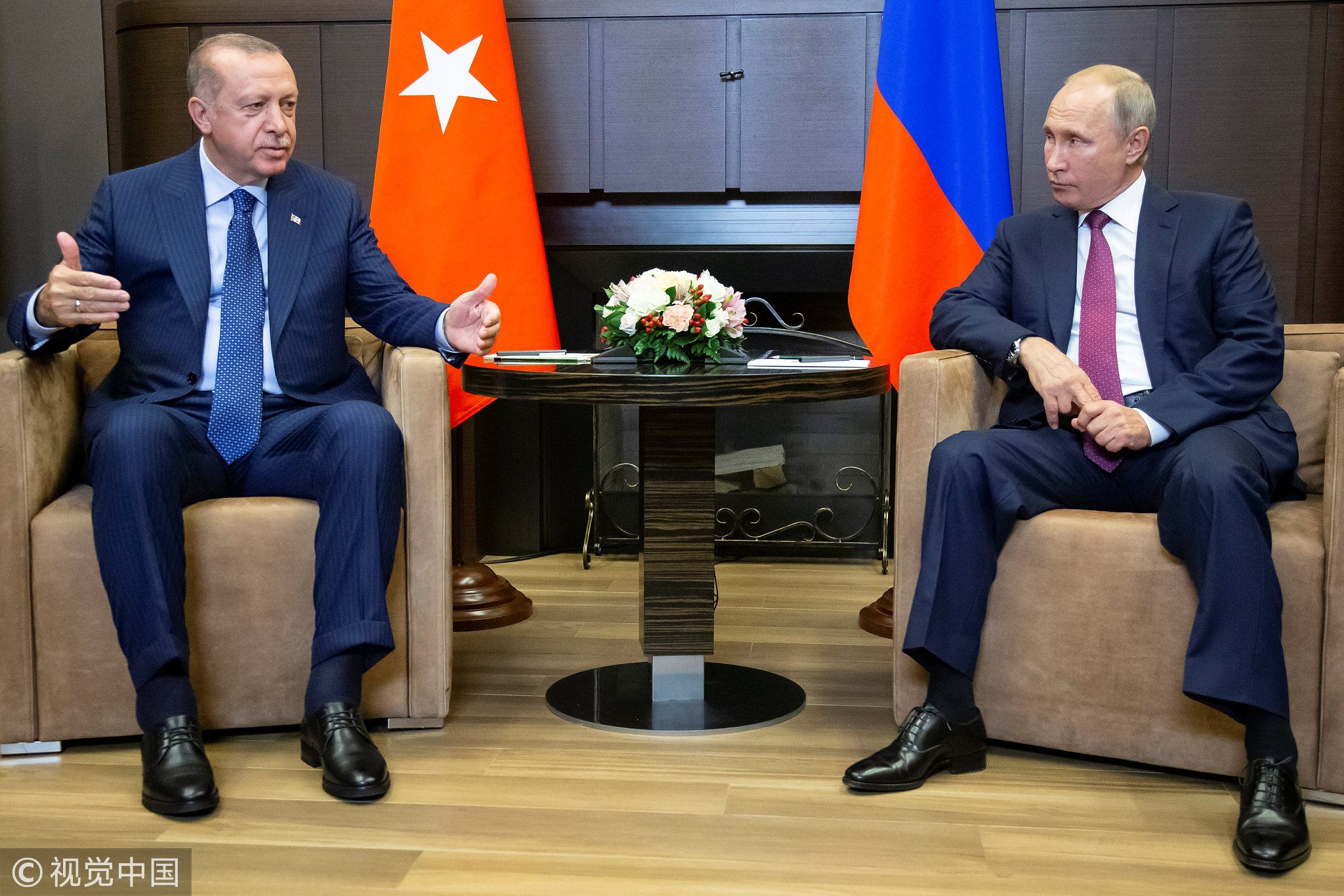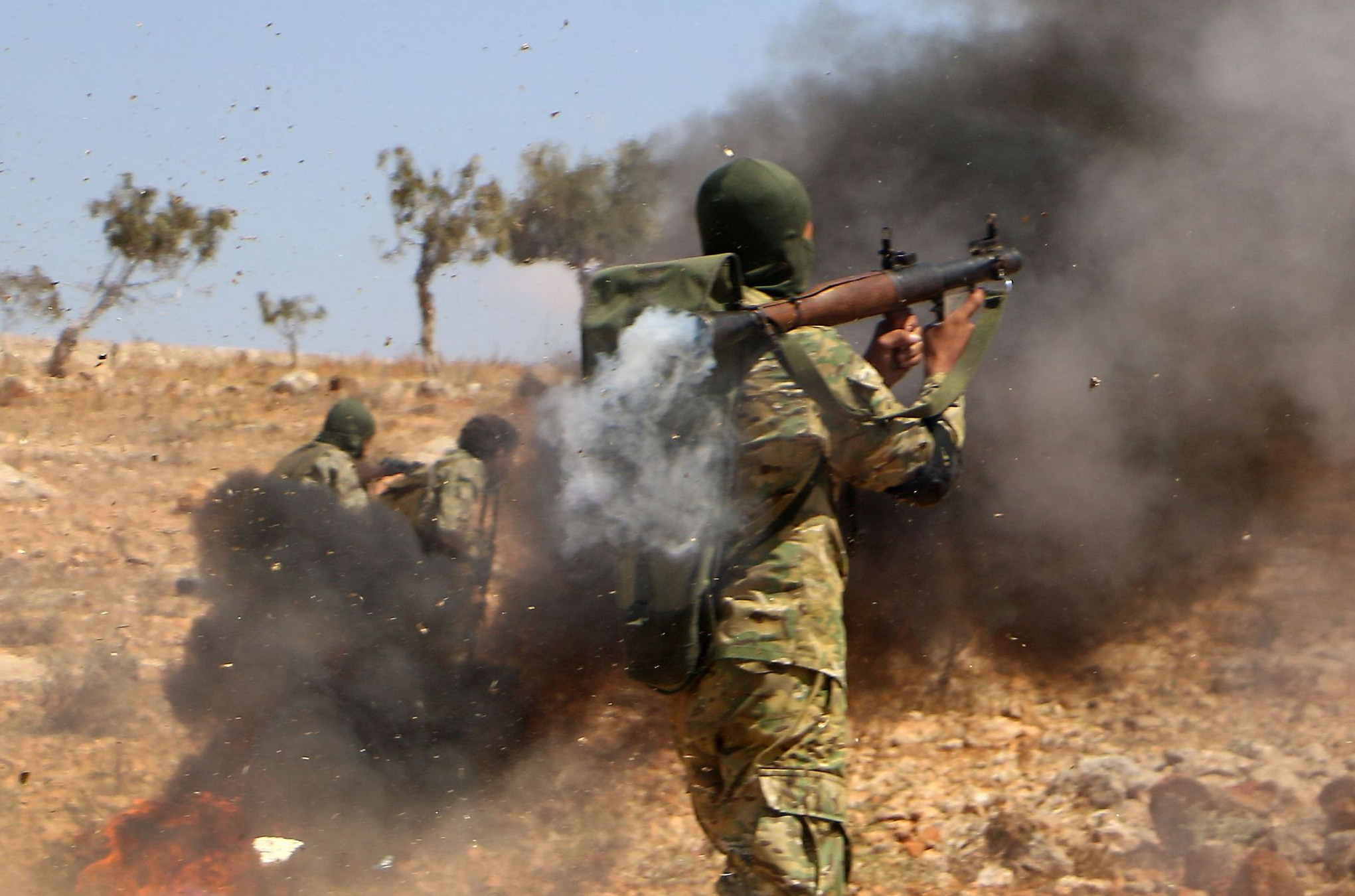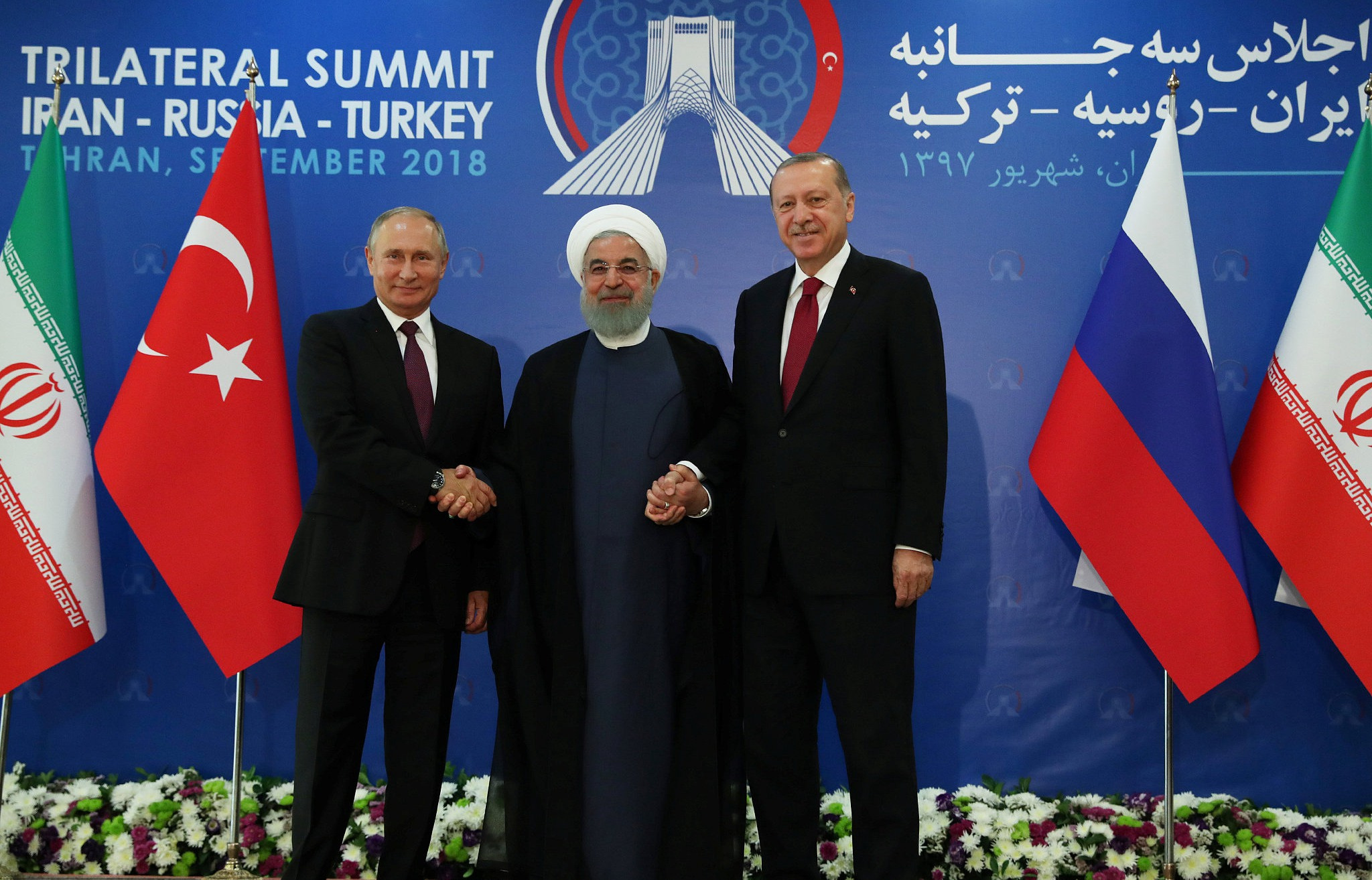
Politics
22:54, 17-Sep-2018
Russia, Turkey agree to create buffer zone in Syria's Idlib
Updated
21:55, 20-Sep-2018
CGTN
00:27

Russian and Turkish troops are to enforce a new demilitarized zone in Syria's Idlib region from which "radical" rebels will be required to withdraw by the middle of next month, Russian President Vladimir Putin said on Monday after a meeting with his Turkish counterpart.
Turkish President Recep Tayyip Erdogan and Putin met in Sochi as international concern mounted over an expected Syrian government assault on the rebel-held province of Idlib.
After Putin's talks with Erdogan, who has opposed a military operation against the rebels in Idlib, Russian Defence Minister Sergei Shoigu told reporters an offensive would not now take place.

Russian President Vladimir Putin (R) meets with his Turkish counterpart Recep Tayyip Erdogan in Sochi, September 17, 2018. /VCG Photo
Russian President Vladimir Putin (R) meets with his Turkish counterpart Recep Tayyip Erdogan in Sochi, September 17, 2018. /VCG Photo
The Russian leader, speaking at a news conference with Erdogan, said they agreed to create a demilitarized zone with a breadth of 15-20 km along the contact line between the armed opposition and government troops. The deadline for withdrawal from the zone of "radically-minded" rebels is October 15.
Erdogan, who had feared another cross-border exodus of Syrian refugees to join about three million people in Turkey, said the deal would allow opposition supporters to stay where they were, and avert a humanitarian crisis.
Turkish and Russian monitors
"By October 10, at the suggestion of the Turkish president, (we agreed) on the withdrawal from that zone of the heavy weapons, tanks, rockets systems and mortars of all opposition groups," Putin said, with Erdogan standing alongside him.

Syrian rebel fighters take part in combat training in the northern countryside of the Idlib province, September 11, 2018. /VCG Photo
Syrian rebel fighters take part in combat training in the northern countryside of the Idlib province, September 11, 2018. /VCG Photo
Neither Putin, not Erdogan explained how they planned to differentiate "radically-minded" rebels from other anti-Assad groups. It was also not immediately clear how much of the city of Idlib fell within the zone.
"With this agreement, we have precluded experiencing a large humanitarian crisis in Idlib," Erdogan told reporters at the news conference.
"The opposition will continue to remain in the areas where they are. In return, we will ensure that the radical groups, which we will determine with Russia, will not operate in the area under discussion," the president added.
The new hope
Ahead of the press conference, Erdogan promised that a joint statement on Syria due to be made after his meeting with Putin would bring "new hope" to the region.

Russian President Vladimir Putin (L), Iranian President Hassan Rouhani (C) and Turkish President Recep Tayyip Erdogan meet in Tehran, September 7, 2018. /VCG Photo
Russian President Vladimir Putin (L), Iranian President Hassan Rouhani (C) and Turkish President Recep Tayyip Erdogan meet in Tehran, September 7, 2018. /VCG Photo
The closed-door meeting at the Russian presidential residence lasted around one hour and 50 minutes, the Anadolu Agency reported.
Erdogan was accompanied by Turkish Foreign Minister Mevlut Cavusoglu, Energy and Natural Resources Minister Fatih Donmez, Treasury and Finance Minister Berat Albayrak, Defense Minister Hulusi Akar, Trade Minister Ruhsar Pekcan, head of National Intelligence Service (MIT) Hakan Fidan, Presidential Spokesman Ibrahim Kalin and Presidency Communications Director Fahrettin Altun.
Among the Russian delegation were Foreign Minister Sergey Lavrov, Energy Minister Aleksandr Novak, Defense Minister Sergey Shoygu and Kremlin Spokesman Dmitry Peskov.
The two leaders met previously on September 7 in Tehran for a three-way summit with Iranian President Hassan Rouhani that saw the Russian and Turkish leaders openly disagree over how to deal with the rebel stronghold, which borders Turkey.
(With inputs from Reuters, AFP)

SITEMAP
Copyright © 2018 CGTN. Beijing ICP prepared NO.16065310-3
Copyright © 2018 CGTN. Beijing ICP prepared NO.16065310-3